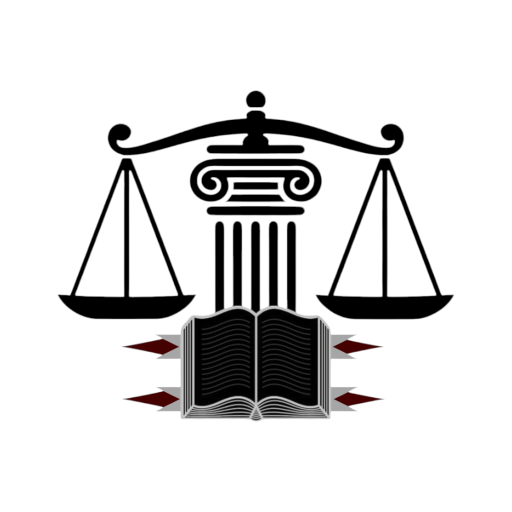Islamic Law: Sources and Importance
Introduction:
Islam is often referred to as a complete code of life, providing guidance on all aspects of human existence. The sources of Islamic law are diverse, with the Quran being the first and most primary source. According to Islam, the ultimate authority for all matters is Allah (God), and His guidance is embedded within these sources. Islamic law, or Shariah, is derived from two main categories of sources: primary and secondary sources.
Importance of Sources in Islamic Law:
The sources of Islamic law hold great importance because they provide the foundation for all legal and moral principles in Islam. The Quran is regarded as the ultimate source of authority, and its guidance shapes all subsequent Islamic legislation and jurisprudence. Through the Quran, Allah directs the lives of Muslims in all spheres, from personal behavior to broader social and legal structures.
Meaning of Islamic Law:
Islamic law, or Fiqh, is the knowledge and understanding of what is beneficial for an individual’s self and what is harmful. As defined by Imam Abu Hanifah, Fiqh encompasses both the rights and duties of a person in accordance with divine guidance.
Types of Sources in Islamic Law:
Muslim jurists classify the sources of Islamic law into two broad categories:
-
Primary Sources of Islamic Law
-
Secondary Sources of Islamic Law
Primary Sources of Islamic Law:
There are two key primary sources of Islamic law:
-
The Quran
-
The Sunnah
The Quran as a Primary Source of Islamic Law:
The Quran is the first and foremost source of Islamic law. It is the sacred scripture revealed by Allah to the Prophet Muhammad (S.A.W), and it provides a comprehensive set of laws, moral guidance, and principles for all aspects of life. Although the Quran is not a legal code in the modern sense, it serves as the foundational framework for Islamic law, offering guidance on personal, social, economic, and political matters.
-
Importance of the Quran:
The Quran\’s guidance is vital because it not only regulates the relationship between human beings but also their relationship with Allah. It acts as the moral and legal blueprint for how Muslims should live their lives.
Sunnah as a Source of Islamic Law:
The Sunnah refers to the actions, sayings, and approvals of the Prophet Muhammad (S.A.W), who serves as the model for Muslims in all aspects of life. The Sunnah complements and elaborates upon the teachings of the Quran, providing detailed explanations and examples for how the divine commands should be implemented.
-
Importance of Sunnah in Islamic Legislation:
The Sunnah is second in importance only to the Quran, and it plays a critical role in explaining and applying the principles set forth in the Quran. The Prophet Muhammad\’s life provides a living example of how Islamic principles should be interpreted and followed.
Secondary Sources of Islamic Law:
Secondary sources of Islamic law help in the interpretation and application of the Quran and Sunnah, especially when new issues arise or there is no direct guidance in the primary sources. Some key secondary sources include:
-
Ijma (Consensus)
-
Qiyas (Analogy)
-
Ijtihad (Independent Legal Reasoning)
-
Taqlid (Imitation)
-
Istidlal (Reasoning)
-
Istihsan (Juristic Preference)
-
Opinions of Muslim Jurists
Ijma as a Source of Islamic Law:
Ijma refers to the consensus of Islamic scholars or jurists on a specific legal issue or ruling. It serves as a source of law, especially when a matter is not explicitly addressed by the Quran or Sunnah. The basis of Ijma comes from the Quran, Sunnah, and analogy.
Qiyas as a Source of Islamic Law:
Qiyas is the method of drawing analogies from existing laws in the Quran or Sunnah to address new cases not directly covered by these texts. It is a process of applying the rulings of the Quran and Sunnah to situations where similar principles or circumstances exist.
Ijtihad as a Source of Law:
Ijtihad is the process of independent reasoning or effort by a jurist to find a solution to a legal issue when no clear guidance exists in the Quran or Sunnah. Jurists engaged in ijtihad use their understanding of Islamic principles to resolve complex legal matters.
Taqlid as a Source of Islamic Law:
Taqlid refers to following the established opinion or legal rulings of earlier jurists, especially in cases where a jurist may not be able to conduct ijtihad due to a lack of expertise or resources. While ijtihad allows for independent reasoning, taqlid represents adherence to established jurisprudence.
Istidlal as a Source of Islamic Law:
Istidlal is a method of reasoning used to derive legal rulings from the Quran and Sunnah. It involves analyzing specific texts and verses to draw conclusions on legal matters not explicitly addressed in the primary sources.
Istihsan as a Source of Islamic Law:
Istihsan refers to the concept of \”juridical preference,\” allowing jurists to favor a ruling based on its suitability and alignment with the higher objectives of Islamic law. It enables flexibility in cases where strict application of the law might lead to an undesirable or impractical outcome.
Opinions of Muslim Jurists as a Source of Islamic Law:
The opinions of Muslim jurists (or fatwas) also contribute to the development of Islamic law. These opinions, based on deep scholarly knowledge of the Quran, Sunnah, and Islamic jurisprudence, can influence how legal matters are interpreted and applied.
Conclusion:
In conclusion, Islamic law is a comprehensive and dynamic system that governs the lives of Muslims in all areas, from personal conduct to societal governance. It is based on two primary sources: the Quran and the Sunnah, which provide clear and direct guidance. The secondary sources, such as Ijma, Qiyas, and Ijtihad, allow flexibility and adaptability in applying the law to new situations. Islamic law is not just a set of rules; it is a complete system of justice and ethical living. It offers a balanced and comprehensive framework for social harmony, justice, and prosperity.
